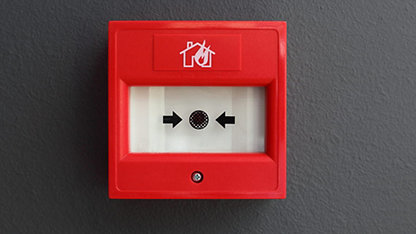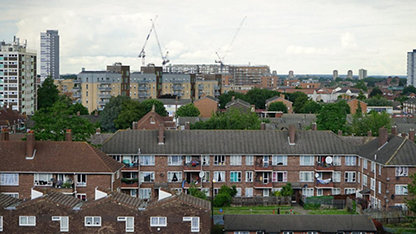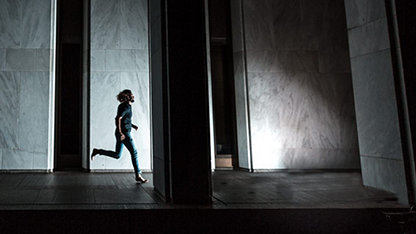The Royal Institution of Chartered Surveyors (RICS) has today issued proposed guidance for public consultation. The guidance aims to help homebuyers and leaseholders, profoundly impacted by delays in the homebuying market, caused by safety concerns over cladding, and the cost of remediation.
The guidance (Valuation of properties in multi-storey, multi-occupancy residential buildings with cladding) will help by setting out a consistent position for valuers carrying out mortgage valuations, on when EWS1 forms should be requested for buildings with cladding, before valuing a property, to avoid unnecessary delays.
Contributions to the consultation are welcome from all. Although the guidance is intended for use by valuers and mortgage lenders, it will also provide clarity for owners/operators of buildings, fire risk assessors and others who are involved in properties with cladding. RICS is particularly keen to engage leaseholders, homebuyers and those that advise them (such as conveyancers).
The responses gathered from the public, valuers, lenders and other stakeholders will shape the guidance and seek to form a consensus on where an EWS1 form is required or not and, in turn, help balance the risks to mortgage lenders, existing leaseholders and borrowers where combustible cladding may be present on a residential building. The guidance will not act as a substitute for a life safety fire risk assessment, nor will it advise on how to complete an EWS1 form.
The proposed guidance includes criteria, based on existing Government advice and developed in consultation with the fire safety sector, lenders and other stakeholders, to help valuers decide where an assumption can be made that remediation work, which can affect the value of the property, is unlikely to be needed and an EWS1 should therefore not be required.
The guidance includes the following proposed criteria:
Building over six storeys
- There is no cladding or curtain wall glazing on the building and
- if there are balconies where the balustrades and decking are constructed of combustible materials (e.g. timber), they are not stacked vertically above each other.
Buildings of five or six storeys
- There is not a significant amount of cladding on the building (for the purpose of this guidance, approximately one quarter of the surface façade is a significant amount) and
- there are no ACM or MCM panels on the building* and
- if there are balconies where the balustrades and decking are constructed with combustible materials (e.g. timber), they are not stacked vertically above each other.
Buildings of four storeys or fewer
- There are no ACM or MCM panels on the building*.
* Note: metal cladding and ACM/MCM are visually very similar, so if metal cladding is present, the valuer should either confirm with the building owner or managing agent in writing that they are not ACM/MCM, or an EWS1 inspection should be requested.
Ben Elder, RICS Head of Valuation Standards commented:
“Following the Grenfell Tower tragedy in 2017, fire safety in our built environment has rightly been under significant scrutiny both in the UK and globally. RICS worked with industry to ensure properties were safe from fire risk and to produce the EWS1 form to get the market moving.
“Since its introduction, Government advice has changed, and COVID-19 has seen lending criteria reviewed. EWS1 was never intended to hold up the market, indeed without it, no one would be moving. However, this proposed guidance intends to help by providing valuers with clear criteria to help them decide on whether an EWS1 form may be required or not.
“There will clearly still be many cases where an EWS1 form is necessary, but the guidance and insight resulting from this consultation will enable us to continue to work with stakeholders, including Government, to find solutions to help speed up the process for remediating these buildings.”
The guidance note is subject to final approval by RICS’s independent Standards and Regulation Board, chaired by Dame Janet Paraskeva, following the consultation.*
Dame Janet Paraskeva, commented:
“Public confidence in the safety of buildings with external cladding systems is at an all-time low.
“Post Grenfell, uncertainty about the safety of buildings with cladding systems has understandably had a significant impact on the market for affected properties. Concern over safety and potential remediation costs presents a significant challenge for those advising potential purchasers and lenders.
“RICS, through its Independent Standards and Regulation Board, is today launching a UK-wide consultation on guidance designed to help surveyors when they undertake such valuations for mortgage lending. The purpose of the guidance is to create consistency, and to support best practice, in order to ensure that properties affected are properly identified and those unaffected by unsafe cladding are not unnecessarily impacted.
“I hope everyone with an interest in this important issue to take part in the consultation."
The consultation will be open from 8 January 2021 and will close on 25 January 2021 with the proposed guidance note due in Spring 2021.
Notes for editors:
* The Standards and Regulation Board is responsible for ensuring that RICS standards are maintained and upheld in the public interest
The EWS1 process, developed in December 19 by RICS, UK Finance and BSA, was developed in response to UK Government advice to check all potentially unsafe cladding systems for buildings over 18m following Grenfell. However, with changes in Government advice in January 2020, all buildings were brought into scope with many lenders requesting EWS1 forms on all buildings of multiple occupancy.
RICS updates on fire safety including the Q&A for consumers can be found on our Fire Safety hub.
RICS training, available for RICS Chartered Building Surveyors and RICS Chartered Building Control Surveyors is set to start in early 2021.
RICS continues to work with the insurance sector and Government to find solutions to the issues around Professional Indemnity Insurance.
We are RICS
Everything we do is designed to effect positive change in the built and natural environments.
Through our respected global standards, leading professional progression and our trusted data and insight, we promote and enforce the highest professional standards in the development and management of land, real estate, construction and infrastructure.
Our work with others provides a foundation for confident markets, pioneers better places to live and work and is a force for positive social impact.













